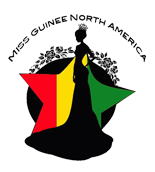ABOUT GUINEA

Independent from France since 1958, Guinea did not hold democratic elections until 1993 when Gen. Lansana CONTE (head of the military government) was elected president of the civilian government. He was reelected in 1998 and again in 2003, though all the polls were marred by irregularities. History repeated itself in December 2008 when following President CONTE’s death, Capt. Moussa Dadis CAMARA led a military coup, seizing power and suspending the constitution as well as political and union activity. Guinea has maintained some semblance of internal stability despite spillover effects from conflict in Sierra Leone and Liberia. As those countries have rebuilt, however, Guinea’s own vulnerability to political and economic crisis has increased. Declining economic conditions and popular dissatisfaction with corruption and bad governance prompted two massive strikes in 2006, and a third nationwide strike in early 2007. The country possesses over 30% of the world’s bauxite reserves and is the second largest bauxite producer. Long-run improvements in government fiscal arrangements, literacy, and the legal framework are needed if the country is to move out of poverty.
Guinea possesses major mineral, hydro power, and agricultural resources, yet remains an underdeveloped nation.
The coastal region of Guinea and most of the inland have a tropical climate, with a rainy season lasting from April to November, relatively high and uniform temperatures, southwesterly winds, and high humidity.
The capital Conakry’s year-round average high is 29 °C (84.2 °F), and the low is 23 °C (73.4 °F). Conakry’s average annual rainfall is 4,300 mm (169.3 in). Sahelian Upper Guinea has a shorter rainy season and greater daily temperature variations. There is a dry season (December to May) with northeasterly harmattan winds.
Guinea is richly endowed with minerals, possessing an estimated quarter of the world’s proven reserves of bauxite, more than 1.8 billion metric tons (2.0 billion short tons) of high-grade iron ore, significant diamond and gold deposits, and undetermined quantities of uranium.
Guinea also has considerable potential for growth in the agricultural and fishing sectors. Land, water, and climatic conditions provide opportunities for large-scale irrigated farming and agroindustry. Remittances from Guineans living and working abroad and coffee exports account for the rest of Guinea’s foreign exchange

